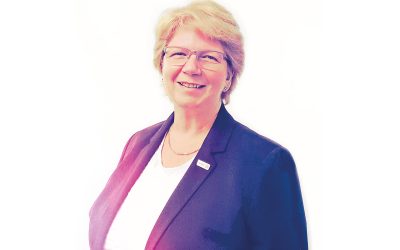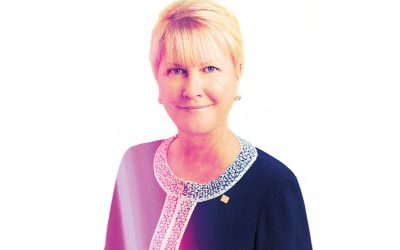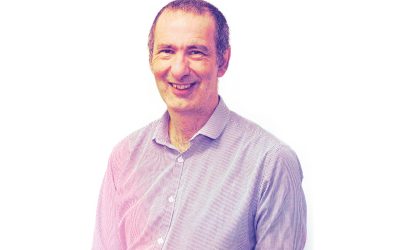Civil Servant and Past President, Gill Russell, and Dr Kordo Saeed, a consultant microbiologist and honorary associate professor at the University of Southampton, both had polio as children.
Gill’s Story
I was 18-months-old in 1954 when I caught polio. I remember nothing of the illness, but learnt later that I was in hospital for weeks. My parents had initially thought it was a mild infection.
Listen to this article
I was left with a paralysed left arm and a shorter, weakened left leg. This was two years before the vaccine became widely available when children in the UK were routinely protected. I was lucky.
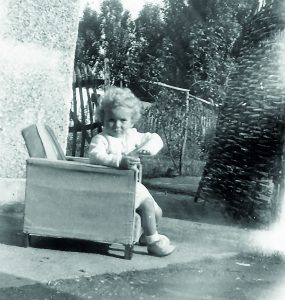

Gill was only 18-months-old when she caught polio
Many children were left unable to walk or breathe unaided. Once I reached 11, the point it was deemed I had stopped growing, my leg was surgically lengthened. I no longer needed the heavy caliper.
The operation took place at the Nuffield Orthopaedic Centre in Oxford where the technique was developed.
I remember a nurse told me the technique had been developed by a Spanish surgeon who had repaired the broken limbs of bullfighters!
Once I was back at school, I got used to hiding my disability as much as possible and hated sympathy – I still do, I’m afraid!
On leaving school, I studied modern languages and eventually joined the Civil Service, becoming a senior policy manager in the Department of Health, before retiring in 2011.
In the later stages of my working life, I was able to use my language skills more often – and travelled to meetings in Brussels and Strasbourg.
I had been a member of Rotaract in my late twenties, when my husband Paul and I moved to Winchester.
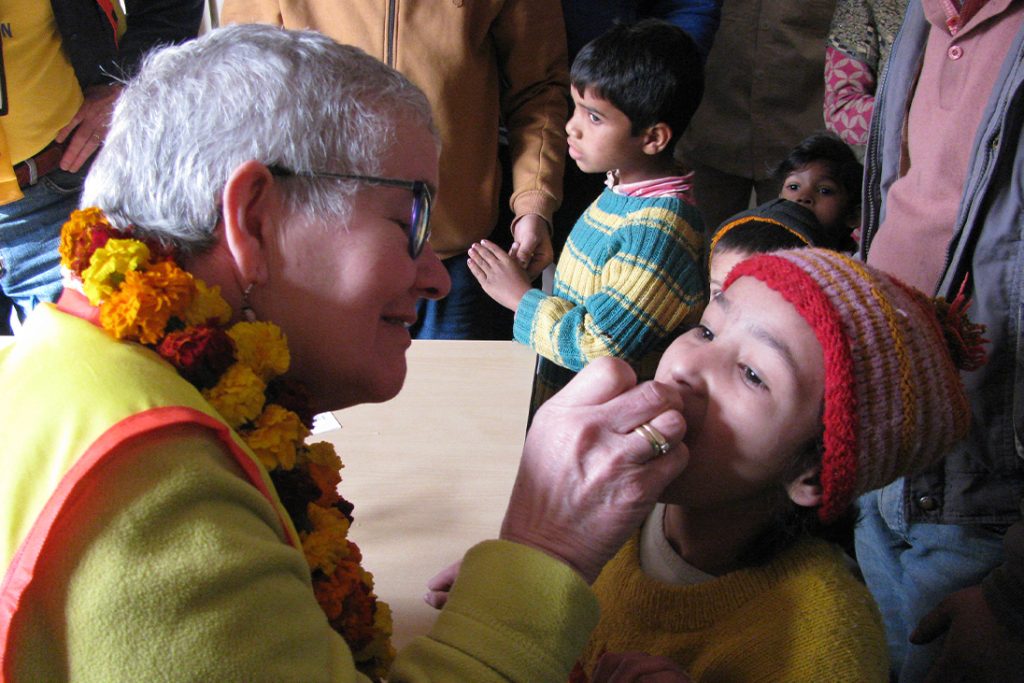

During Gill’s year as President of Winchester Rotary, a record sum was raised for polio eradication.
Whereas he joined Winchester Rotary almost immediately after reaching 30, I joined in 2009 – when women in Rotary were becoming accepted.
It was the End Polio Now initiative which immediately became a focus. During my year as President, a record sum was raised for polio eradication.
I was keen to take part in a vaccination day. In 2018, Paul and I were part of a Rotary GB&I group assisting with vaccinations in Delhi. We were fascinated to see a similar technique to my own childhood leg-lengthening used by Dr Mathew Varghese, at St Stephen’s Hospital – India’s last polio ward.
The following year I went to India again, when Kordo and I, along with two other Winchester Rotarians, joined a similar India NID group.
As happens to many polio survivors in later life, I now have problems with back pain and rheumatoid arthritis – due to the weakness on my left side and overuse on the stronger right.
The recent discovery of the poliovirus in the London sewage system is a stark warning that polio is only a plane trip away.
Kordo’s Story
I got polio when I was 10-months-old in 1974. My parents told me I had missed my vaccination as they had to flee to the mountains in the Kurdish region of North Iraq to flee fighting. I was taken by my grandmother to a doctor who diagnosed me with poliomyelitis, resulting in complete paralysis of my left leg.
As far as I could remember, I have always walked with a caliper. Walking for me wasn’t – and still isn’t – easy.
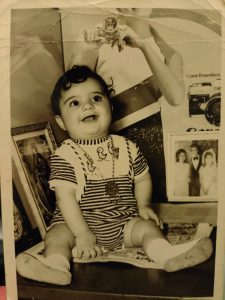

Kordo missed his polio vaccination as a baby as his family
My affected leg didn’t grow as fast as my other leg and eventually ended up 8cm shorter, causing an imbalance when walking with a raised shoe and the caliper.
This imbalance eventually impacted my backbone, which has resulted in scoliosis in my spine.
I also have weakness of my other “goodish” leg with polio affecting the calf muscles.
Over the last 20 years I have been living with arthritic changes in my joints and post-polio syndrome.
I feel I am lucky as the virus didn’t affect my respiratory muscles and I didn’t end up on an iron lung.
I was also lucky that Baghdad had one of the best centres for caliper-making and rehabilitation, which looked after me from my childhood until I fled Iraq.
I have a very supportive family and was not treated differently from my brothers, sent to the same school as them, receiving the same encouragement and support. I loved school, sciences and went to medical school, graduating as a doctor from Sulaimani University in the Kurdish region of northern Iraq.
I came to the UK in 2000 as a refugee when I had to restart my life, and requalified to be able to practise medicine in the UK, beginning as a consultant in medical microbiology and virology with the NHS in 2009. This year I also became an honorary associate professor at the University of Southampton.
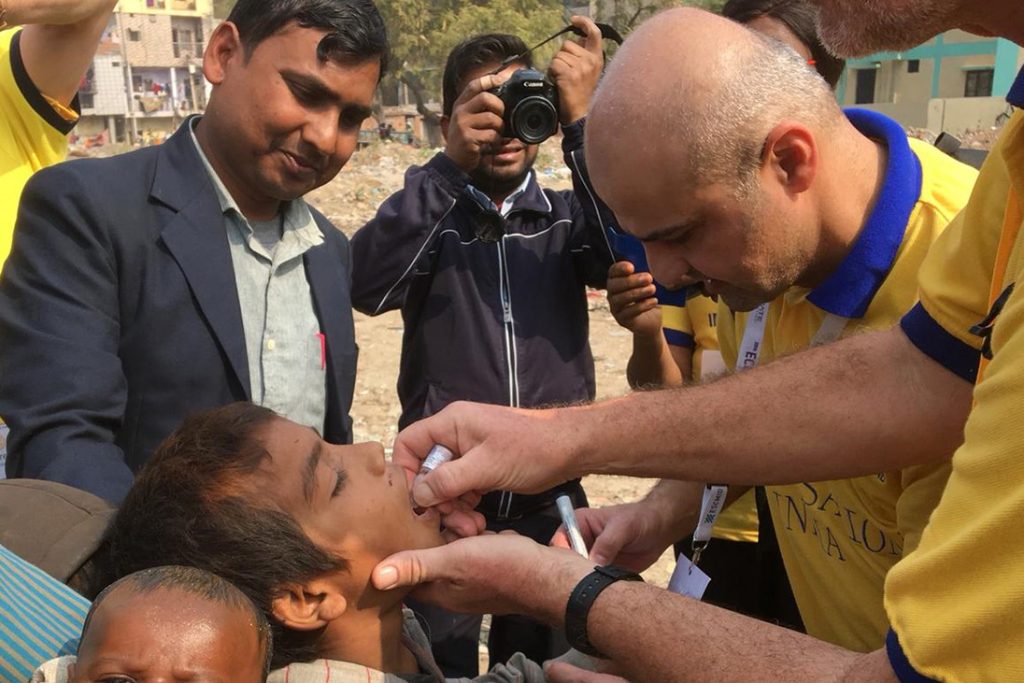

Kordo and Gill have done several joint talks on the topic of polio and End Polio Now.
I joined Winchester Rotary in 2005 through Gill and retired colleague, John Wilkinson. Although part of the international committee, the End Polio Now programme was one of the main reasons I joined to support fund-raising for polio eradication through giving live talks to other Rotary clubs.
Travelling to India for an NID in 2019 with two other Winchester Rotarians as well as Gill and more recently during the lockdowns, Gill and I did a number of joint talks around polio and End Polio Now.
The initiative has been extremely successful and, as a result of this, polio is on the verge of eradication which is down to vaccinations.
Despite the challenges vaccinators and Rotarians face in some areas, we are determined to rid the world of this virus.









